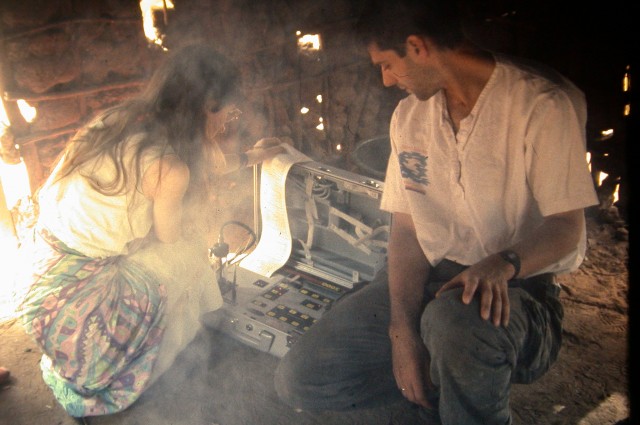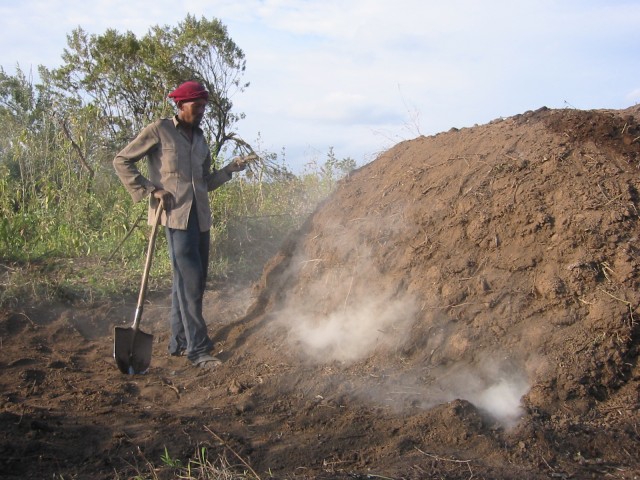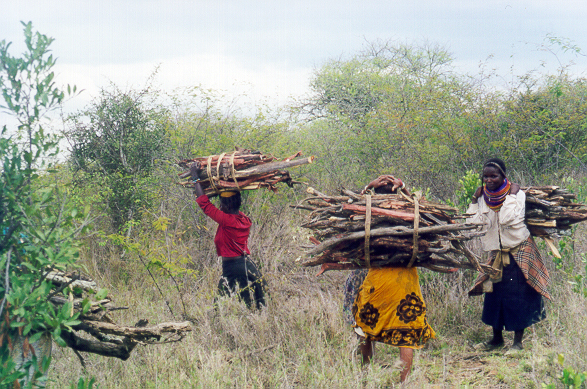Hao is a postdoctoral researcher in RAEL as well as in the Department of Earth System Science at Tsinghua University. She holds a double-degree Ph.D. from Beijing Normal University and Aalborg University, specializing in environmental economics and environmental planning respectively. Hao’s research applies interdisciplinary methods to analyze the pollution sources, health impacts and external cost of air pollution in China.
Hao is deeply interested in environmental policies and their effectiveness at balancing economic growth with environmental sustainability. She is currently collaborating with Professor Zhang Qiang, Professor Liu Zhu and Professor Daniel Kammen. Her postdoctoral research investigates energy consumption in developing countries and its impacts on CO2 emissions and human health.
She is lead researcher in the UC Berkeley-Tsinghua U‑Duke University partnership on the health impacts of decarbonization of the power sector in China, California, and elsewhere.
For her publications: click here.
Current position:
Postdoctoral Research Fellow, University of British Columbia
Emerging economies will account for more than 90 percent of new energy-generation capacity by 2035, and Latin America is no exception to this trend. In the last 40 years, the region’s primary energy demand has more than doubled. In a global environment of increasingly volatile fuel prices, emerging technologies, and climate-change impacts, the continued increase in demand presents challenges and opportunities to Latin America and the Caribbean. To manage the next phase of development, the region’s governments will need to develop new energy sources and pay more attention to sustainability.
Kammen and students (Juan Pablo Carvallo, Diego Ponce de Leon Barido and Rebekah Shirley) discussed strategies to design and evaluate programs for managing energy and other resources in the region both as a speaker panel for the Center for Latin American Studies at UC Berkeley and in a new publication on integrated tools for building low-carbon economies in Latin America and the Caribbean.
Our researchers also delve into the specific case study of Nicaragua along with Fulbright Nexus Fellows 2012–2013. This group explored three case studies at the national, regional and community levels in Nicaragua: breadfruit and food insecurity; rainwater harvesting on the Pacific coast; and, bio-energy production from agricultural waste. This research shows the increasing need to see the climate, land, energy, and water (CLEW) sectors as interrelated, and to proactively plan policy with these interconnections in mind. Nicaragua’s opportunities for sustainable development within a CLEW nexus framework are sufficiently large that the country could well become an example of wise natural resource use for Latin America and the world.
Press release on our work with biogas digesters in Mexico:
Fusion, March 24, 2014. These students have bold ideas on how to make renewable energy more accessible.
Article, full video and photos from our panel discussion with CLAS:
Center for Latin American Studies. February 10, 2014. Sustainable Energy Systems in Latin America and the Caribbean.
Read more about our involvement in the Fulbright Regional Network for Applied Research (NEXUS) Program 2012–2013.
Ian is a National Defense Science and Engineering Graduate Fellow in the Energy and Resources Group and a member of the inaugural “Environment and Society: Data Science for the 21st Century” National Science Foundation Research Traineeship (NRT) cohort. His research interests lie at the intersection of energy systems, climate change adaptation, and global health. He is a member of the Next Generation Ecosystem Experiments Arctic team, investigating biogeochemical factors governing energy fluxes in arctic tundra environments from the plant scale to the model grid-cell scale. He is also interested in developing better tools for characterizing seasonal snowpack variation, in order to improve forecasts of streamflow, water availability, and hydropower production. Ian serves as project manager for Tiny House in My Backyard, a student project to design and build mobile, affordable, and sustainable net-zero energy housing on the Berkeley Global Campus. Prior to arriving at UC Berkeley, he received his BA from Harvard University in Applied Mathematics and spent three years modeling trends in global injury rates at the Institute for Health Metrics and Evaluation. Outside of academia, Ian is a member of the Tahoe Backcountry Ski Patrol, and he writes about mountain adventures and environmental issues on his blog at TheInertia.com.
Tiny House Competition
This event is open to all colleges and universities in California. Participation promotes an interest in energy conservation, energy efficiency and green building and solar technologies. The Energy & Technology Center and Community Solar are proud to sponsor this event.
“The Tiny House Competition – Build Small and Win Big” is a new competition in the Sacramento region, challenging collegiate teams to design and build net-zero, tiny solar houses. The event is anticipated to be held in the fall of 2016 and is spearheaded by SMUD’s Energy & Technology Center and Community Solar®program.
The Competition
This event is modeled after the U.S. Department of Energy’s Solar Decathlon. An educator or other school administrator will mentor each team. During the two years leading up to the event, students will design and build the energy-efficient houses. A stipend between $3,000 — $6,000 will be provided.
Awards
During the week of competition, students will exhibit their houses to the public, judges and the media. The ten categories of the decathlon include architectural design, livability, communication, affordability, energy efficiency and balance, appliance load, technology/electrical and mechanical systems, transportation, sustainability and documentation. On the last day, teams will be awarded trophies and monetary prizes.
Deadline to apply
The deadline to apply for the 2015 competition has passed.
Workshop date
A Tiny House Workshop is scheduled for November 14 & 15, 2014
Contacts
Suzette Bienvenue, Energy & Technology Center
Suzette.Bienvenue@smud.org
Brent Sloan, Community Solar
Brent.Sloan@smud.org
Downloads
Alana is a first-year Master’s student in the Energy and Resources Group. Prior to arriving at ERG, she received her undergraduate degree from Tufts University (2012) in Environmental Studies and International Relations. She served as an AmeriCorps National Teaching Fellow for two years at the Dever-McCormack School in Dorchester, MA, teaching 8th grade academic enrichment classes as well as a high school preparation curriculum that she developed for public schools across the Citizen Schools network. At ERG, her research interests focus on translating energy and resource issues into secondary-school-level science lessons in order to promote ecological intelligence and climate literacy goals. In addition to working on environmental education efforts locally, Alana is part of an interdisciplinary team of graduate students working to design and build a net-zero-energy tiny house for the Sacramento Municipal Utility District (SMUD) Tiny House Competition. Part of the tiny house project involves leading a “DeCal” course for UC Berkeley undergraduates, teaching students how to install solar panels and put into practice green building techniques in order to promote further campus-wide carbon neutral housing projects. The tiny house is intended to produce a portion of its own food and recycle/treat greywater onsite in addition to meeting its own energy needs. The award winning Tiny House website is: THIMBY.
Dr. Felix Creutzig is head of the working group Land Use, Infrastructures and Transport. He is lead author of the IPCC’s Fifth Assessment Report and was lead analyst of the Global Energy Assessment. Felix Creutzig teaches courses about climate change and infrastructures at Technische Universität Berlin. His research focuses on:
• Conceptualizing and quantifying GHG emissions of cities world-wide
• Assessing opportunities for GHG mitigation of cities world-wide
• Building models of sustainable urban form and transport
• Land rents as a complement for financing sustainable infrastructures
• Analyzing the role of capital stocks and infrastructures for climate change mitigation
• Land use-mediated uncertainty in integrated assessments, particularly those related to bioenergy
Since 2009 Felix Creutzig is also group leader at the Department of the Economics of Climate Change at Technische Universität Berlin. He was a postdoc fellow at the Energy and Resources Group at the University of California, Berkeley, collaborating with Dan Kammen, Lee Schipper and Elizabeth Deakin, and the Energy Foundation China in Beijing. Felix Creutzig received his PhD in Computational Neuroscience from Humboldt-Universität zu Berlin, and holds a Master of Advanced Studies (Path III in Mathematics) from Cambridge University, UK.
Rob is interested in sustainability, resource use, and environmental change in the developing world. He explores these issues principally, though not exclusively, in the context of energy. He became interested in the intersection of energy, society, and environment while working as a teacher in the US Peace Corps in a remote community in northwestern Kenya. He uses an interdisciplinary approach that places equal emphasis on qualitative and quantitative methods across a range of scales, from local to regional and global. Follow this link for more information about his past and current research.
https://environment.yale.edu/profile/bailis/
My research focuses on exposure to, and health effects of, environmental, behavioural, nutritional, and metabolic risk factors and their interventions at the population level. The research activities routinely combine concepts, data, and methods from a range of environmental, health, and quantitative sciences with a systems perspective. We collect and analyze primary field data on environmental risk factors (primarily air pollution). We also develop and apply analytical models to combinations of primary and secondary data to estimate health effects of risk factor exposures and interventions. You can learn about our past and ongoing studies, and see their results and publications, through the Environment and Global Health Research Group page.
Biomass fuels (wood, charcoal, dung, and agricultural residues) are vital to basic welfare and economic activity in developing nations, especially in sub-Saharan Africa (SSA), where they meet more than 90% of household energy needs in many nations. Combustion of biofuels emit pollutants that currently cause over 1.6 million annual deaths globally (400,000 in SSA. Because most of these deaths are among children and women, biomass use is directly or indirectly related to multiple Millennium Development Goals (MDGs), including environmental sustainability, reducing child mortality, and gender equity.

Taking indoor air pollution measurements in rural Kenya

Making charcoal, Kenya

Women gathering firewood, Zombe, Kenya

Energy efficiency, renewable energy, and smart systems integration provides a rapid path away from local and globally polluting energy systems. This general assessment is particularly true for impoverished areas or those impacted by conflict. This is the case because the mixture of energy efficiency and renewable energy can generally be deployed far more rapidly and in more distributed a fashion than traditional, centralized, energy systems.
Kosovo is particularly in need, and particularly amenable to this sort of “rapid and green” development plan. This project, started to identify and quantify opportunities to choose a clean path instead of an ongoing fixation on coal, has now spread to examine both national and regional opportunities in Southeast Europe.




You must be logged in to post a comment.